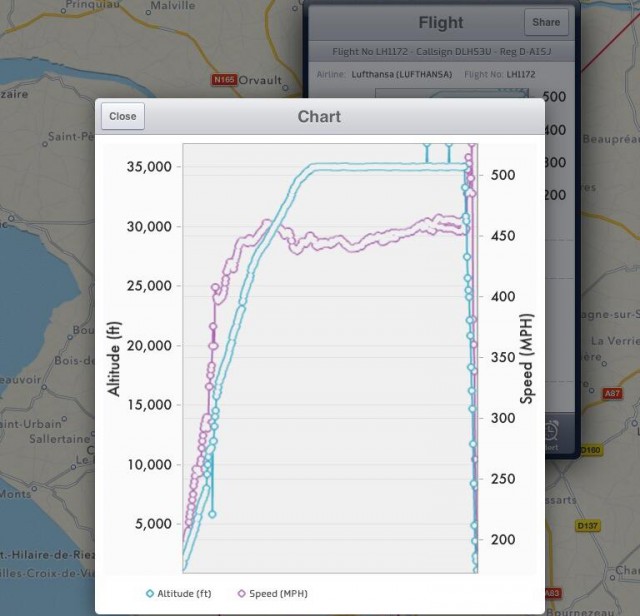Watching airline activity live via social media can have interesting consequences. Last week, I happened to see the #7700 tweet [which are tweets that are auto generated that go out any time an aircraft in coverage squawks 7700] from Planefinder.net as soon as it was posted and went to check out what was happening. Normally when you catch these emergencies, not much happens immediately, and the aircraft either continues on to its destination, or diverts to another airport.
This time I noticed that the aircraft immediately entered a very rapid descent [see an image of normal descent]. In my experience, something like that is usually caused by a loss of cabin pressure, where the pilots level off at 10,000 feet to asses the situation. However, this aircraft passed 10,000 and continued to rapidly descent, which was worrying. Was this a huge emergency, website error or just standard procedure for some issue on the flight?
There were a few moments where I thought I may have been watching a crash of some sort occur in real-time, from thousands of miles away. But thankfully, the pilots were just quick acting, and diverted to a nearby airport.
Lufthansa confirmed to AirlineReporter.com that LH1172 had 151 passengers on board and the captain decided to stopover in Nantes (NTE), France, “due to a medical case (sick passenger).” They confirmed that there was no emergency requested and that the aircraft landed safely .
Watching an emergency occur in real-time and not knowing the outcome at the time is strange. Yes, it lets me break news, literally, as it is happening, but the feeling of not knowing what is truly going on with an emergency aircraft, it’s not a good one.
 |
This story written by Jason Rabinowitz, Senior Correspondent. Jason is a New York City native who has grown up in the shadow of JFK International Airport. A true “avgeek”, he enjoys plane spotting and photography, as well taking any opportunity he can get to fly on an aircraft.@AirlineFlyer | Facebook | |


At first glance I thought the chart was backwards and the descent was pretty normal – Then I saw the drop on the right!!
I assume that with an emergency descent the altitude and speed would both drop rapidly, whereas with a crash the speed would increase.
Is this what people call the “crowbar” descent?
I think you mean http://planefinder.net/ as the source of the 7700 squawks
–Richard
Corrected, thank you!